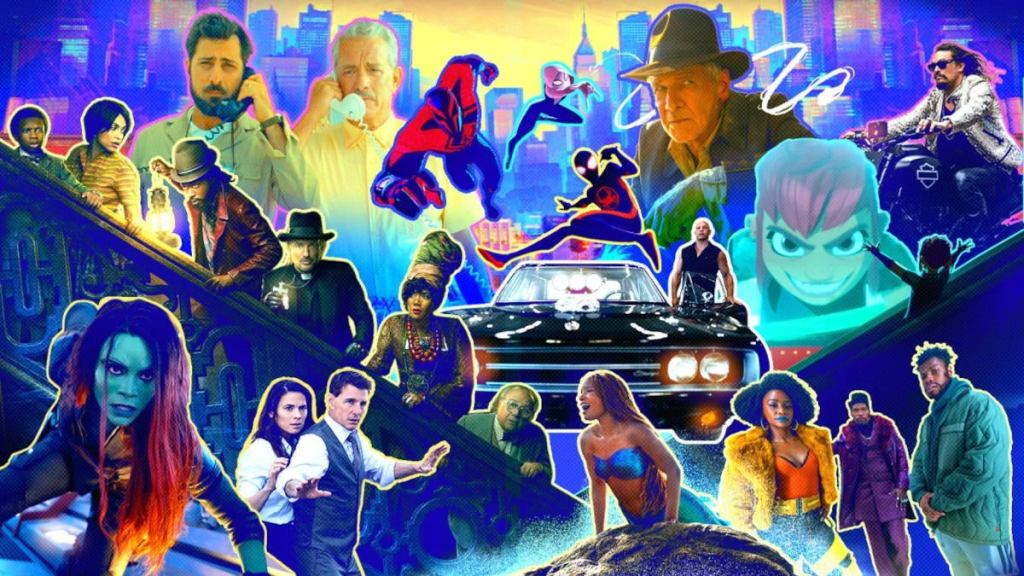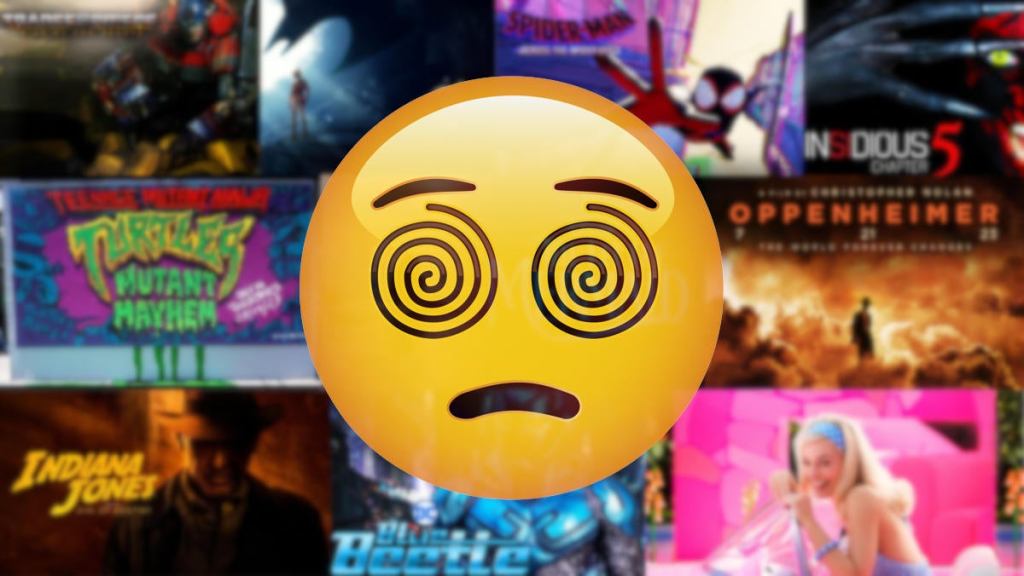Summer 2023 was supposed to be the official official return of the movie theater industry after the COVID-19 pandemic brought it to a standstill – but the box office has been telling a very different story. May-June was one of the busiest release date windows in recent memory, with Marvel’s Guardians of the Galaxy vol. 3, Fast X, Spider-Man: Across the Spider-Verse, Transformers: Rise of the Beasts, Disney’s The Little Mermaid, DC’s The Flash, and Indiana Jones and the Dial of Desitny all opening in theaters in rapid succession.
Videos by ComicBook.com
At the time of writing this, the final week of June has yet to play out but it’s not hard to predict that returns for Indiana Jones 5 won’t be as big as Disney was expecting, as the box office has been down for weeks now. Only two of the films listed above have even crossed $500 million worldwide (Guardians 3, Fast X) and none of them have yet reached $1 billion. Each of these summer blockbusters has a production budget ranging $100-200 million range, setting a high – and outdated – bar for profitability.

With the disappointing summer 2023 box office have come industry articles speculating why each project isn’t doing as well as expected, and/or what it says about changing tastes within the industry. However, one thing that seems to be clear by now, is also the one thing that all the analysts seem most reluctant to say out loud:
The movie theater industry as we knew it is not coming back – and right now, studios are putting out way more supply than there is demand.
The Flash and Transformers: Rise of the Beasts may be the two clearest cases to look at: both films have very high audience scores (84% and 91% respectively) on Rotten Tomatoes and even middling reviews from critics. (65% and 54% respectively). Yet, both The Flash and Transformers 7 have had the biggest struggles at the box office ($241 million and $341 million respectively at this time), and their release dates in consecutive weeks of mid-June is a pivotal moment to spotlight, as it marked the start of a serious bottleneck effect at theaters. People were either still catching up on older genre releases (Guardians, Fast, Spider-Verse), or took enough trips to the theater in recent weeks to deem both Flash and Transformers as future streaming watches. Even with Harrison Ford doing one last turn as Indiana Jones, it’s hard to imagine bottlenecked theaters and a sagging box office lifting, until the next “event” film release (Tom Cruise’s Mission Impossible 7) and/or cultural milestone film (Barbie) arrive in July.
The issue is that studios and analysts are still going by the big-bang first-week release and quick drop-off expectations of pre-pandemic blockbusters. If the last year or so has shown anything, it’s that theatrical runs are settling more into a pattern of the 1990s, where blockbusters ran for weeks at a time before audiences moved on to the next big release, and the wait for home releases was long enough to make latter weeks of theatrical showing still profitable. Conditions are different now, sure: home streaming releases are too prevalent; the thought of dealing with other people in theaters too off-putting; the obvious germ/disease concerns sparked by COVID haven’t faded -and of course, the budgeting necessary for a theatrical outing these days is too much. All understandable reasons for people to now be less inclined to choose movie theaters as a default destination every week. More and more in fact, it seems movie theaters are becoming “event” destinations much like musical concerts: where consumers pick a select number of artists/shows they want to see in a year, rather than making concert-going itself a routine hobby. Movie studios need to (and seem to be) taking notice: the market can’t support so much theatrical content anymore -so schedule accordingly.

Ironically, the current mess with the Writer’s Guild of America (WGA) strike is just what Hollywood needs in order to slow down and reassess any number of things about the industry. The production pipeline is about to slow way down for TV and film releases, which may be the best lab for the experiment of whether fewer theatrical releases mean more profit.
One thing is for sure, though: COVID changed the movie theater business, and there’s no going back. We all need to accept it.








